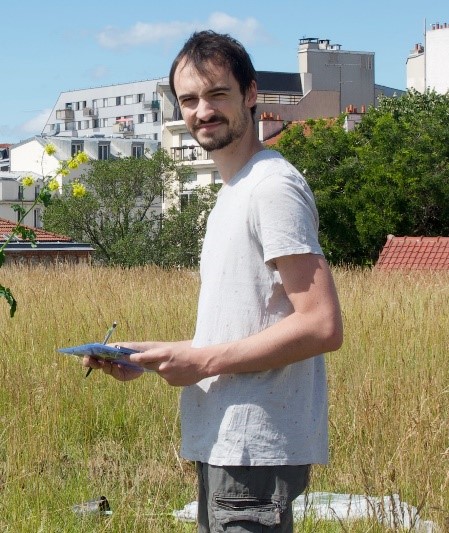
Thesis defense of Arthur FAUVIAU
« Abeilles sauvages et pollinisation en milieux urbanisés : approches expérimentales et méta-analytiques à grande échelle »
Arthur FAUVIAU, PhD Student of ITE Sorbonne Université,
Invites you to the defense of his thesis:
« Abeilles sauvages et pollinisation en milieux urbanisés : approches expérimentales et méta-analytiques à grande échelle »
The jury will be composed of:
- Emmanuelle BAUDRY – Professeure Université Paris Sud
- Bertrand SCHATZ – Directeur de Recherche Centre d’Ecologie Fonctionnelle et Evolutive, UMR CNRS 5175
- Nicolas DEGUINES – Maître de conférences Université de Poitiers
- Emmanuelle PORCHER – Professeure MNHN
- Colin FONTAINE – Chargé de Recherche MNHN
- Isabelle DAJOZ – Professeure Université Paris Cité
- Mickaël HENRY – Directeur de Recherche INRAE
- Yvan KRAEPIEL – Maître de conférences Sorbonne Université
The defense will take place on 11/13/2023 at 2:00 p.m.
UFR TEB room, 45-56 2nd floor, and on Zoom:
https://u-paris.zoom.us/j/82073972980?pwd=QUpUK294cmNhUjY1b1NwR0Vvb2cvdz09
Today, biodiversity is declining globally and pollinating insects are not spared. Land use changes are among the main cause of pollinator loss, especially through urbanization, which is expected to increase in the future. In this context, it is particularly important to understand the effects of urbanization on pollinating insects and the pollination function they provide. However, most studies on the links between, urbanization and pollinators are based on either one or a small number of cities, making difficult to draw generalizable trends. In this work, we studied, at the western European scale, the relationship between urbanization and wild bee communities, as well as links between urbanization and pollination. We found that wild bee communities taxonomic and functional diversity was negatively affected by urbanization, through a reduction in species richness and an urban trait filtering, especially on nesting behavior and diet specialization. We also found that wild bee species richness in cities can be high, but is highly variable among cities. Wild bee species richness variation was largely driven by city size but not by urban green spaces area. We also show that cities may not be refugees for species with conservation status. Finally, we assessed pollination function in a range of 16 European cities, using a pollinometer species (Sinapis alba), and found it to be covered throughout the season, with a peak in early June. Hoverflies and small wild bees were important pollinators of Sinapis alba, with small wild bees having a direct effect on its reproductive success. Habitat fragmentation negatively affected small wild bee visitation rate, and a high morphogroup diversity of insects visiting the pollinometer plants enhanced their reproductive success. Overall, these results provide an overview of the relationships between pollinators, pollination and urbanization. They show that cities support a restricted range of pollinator species and traits, thus advocating for new management practices to safeguard urban pollinators and the pollination function they provide.
Key-word: Pollinators, pollination, urbanisation, urban ecology, community ecology, wild bees.